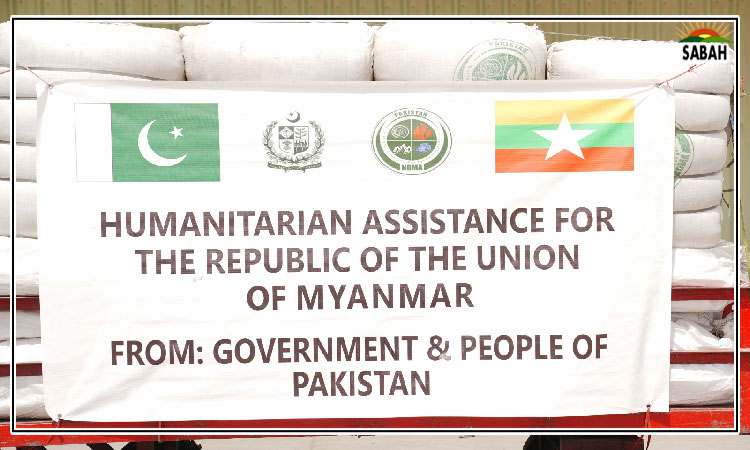US hegemony and strategic maneuvering in Indo-Pacific ۔۔۔Shazia Anwer Cheema
Having played a role in letting the conflicts in Ukraine and Palestine — that overshadowed the international affairs in 2023 — continue, the US now appears ready to facilitate another conflict in another part of the world. The US’s material and ideational investment in the Indo-Pacific is indicating an organic outcome of the war, of course under the same old tried and tested pretense of “greater good, shared values, rule-based world order, and true democracy”. These twisted ideas wrapped in the fallacious rhetoric are now practically making the sane minds nauseated. The moment the US utters this rhetoric, a war can be seen on the horizon — a brutal, half-cooked, strategically ill-planned, shamelessly propagated war.
Despite being knee-deep in Ukraine and Israel, the US treads along the treacherous and unlawful path of containing China in the Indo-Pacific, whose majority shares the ideology of the Global South and firmly believes in breaking the shackles of Western hegemony. The problem while looking from the Western trajectory is that Western-defined democracy and Western-based shared values have no place in the Global South. Also containment of China for the sake of US-articulated world-based order and greater good has long been deciphered. That’s why this rhetoric has lost its relevance in this part of the world. Does that mean the US will stop meddling in faraway lands to save humanity because there is no more reciprocity available — meaning if the land does not want to be saved then don’t save/destroy it? The answer obviously is: no.
The US has proudly published its 2023 engagement in the Indo-Pacific on their US Department of Defense website and the sheer magnitude of the engagements is a tale of more destruction just on a different theatre. One can hope that after facilitating the killing of thousands of Ukrainians and allegedly being involved in the genocide of Palestinians, the US will take a pause and reflect; may try to mend its relations; may try to free the mainstream media; may for a change try to exercise respecting sovereignty of borders and other countries’ internal affairs. I am sorry to tarnish your hope by summarising the strategic US maneuvering in the Indo-Pacific which reflects nothing of this sort.
The US has stationed advanced US military units in Japan to enhance combat-credible deterrence; launched force posture initiatives with Australia, including increased US submarine visits, bomber rotations; and expanded cooperation in various domains, reinforcing regional stability.
The US has expanded its rotational access in the Philippines with a new Enhanced Defense Cooperation Agreement to strengthen interoperability and address shared challenges in the Indo-Pacific and has concluded a Defense Cooperation Agreement with Papua New Guinea to bolster bilateral defense and security cooperation, promoting regional stability.
The US has also increased its strategic asset rotations to the Korean Peninsula, featuring the first US SSBN port call in over 40 years and a nuclear-capable B-52 landing, enhancing deterrence and advancing its shared regional vision through strengthened cooperation with countries like Japan, Australia, India, the Philippines and ASEAN, and overspent $1.2 billion in security initiatives across the Indo-Pacific.
The US has conducted multiple joint exercises like Balikatan, Cope Thunder, Super Garuda Shield, Malabar and Pacific Vanguard to enhance interoperability and promote peace and security in the region.
The year 2024 is full of challenges for the Indo-Pacific, as elections in Pakistan, India, Bangladesh, Taiwan, Indonesia, South Korea and the Solomon Islands are scheduled. Overall 50 countries around the world will have elections in 2024 stirring major economic and political shifts. In this realm of change one can only predict one outcome: the US has neither learned from the past nor does it have any intention to stop its hegemonic traditions. Maybe it is too early to expect anything other than Kissingerism because the curse of Henry Kissinger had been cast deep into the foundations of the US.
Courtesy The Express Tribune, January 13th, 2024.












